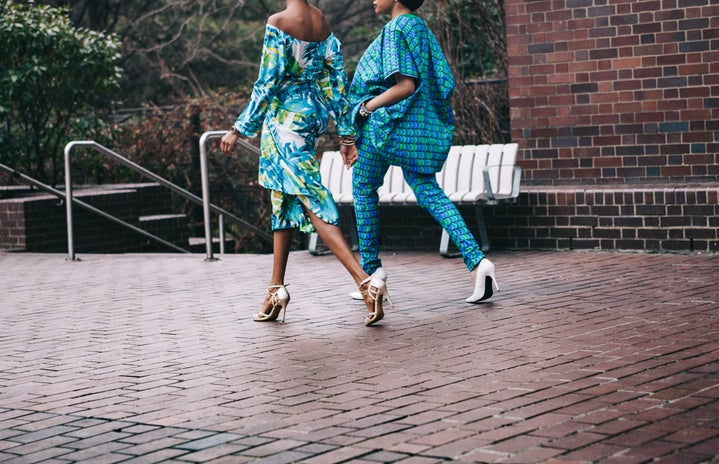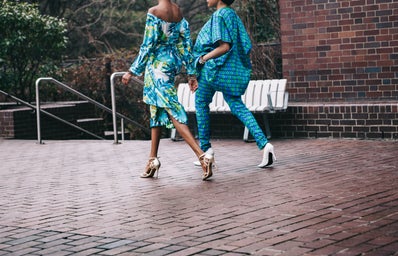ASOS, how do I love thee? Let me count the ways…
I remember my first time visiting ASOS. I was 16 years old and sneakily browsing clothes websites instead of doing my work during an IT lesson. My teacher caught me and gave me a formal warning but recommended checking out asos.com [in my free time, of course].
It must have been one of the only occasions I listened to her but, sure enough, I returned home from school that afternoon, grabbed my dad’s laptop and was introduced to a whole new world of affordable fashion, endless brands and next day delivery.
I’ve since discovered some of my favourite brands, signed up for Premier Delivery four years in a row and spent far too much of my student loan on the site. However, beyond the obvious perks, ASOS is a firm favourite of mine because of its progressive approach to fashion retailing.
On Thursday, The Tab reported that ASOS had launched a line for girls with big busts. The 390 piece range, called ASOS Design Fuller Bust, offers clothing, lingerie and swimwear specifically designed to combat the fit issues faced by those in bra sizes DD-G.
Earlier this year, ASOS was celebrated for designing clothing with wheelchair users in mind. The brand collaborated with Paralympic athlete, Chloe Ball-Hopkins, to create a tie-dye jumpsuit that was waterproof, had a longer hem at the back and was the perfect solution for festival goers in wheelchairs.
Beyond these examples, ASOS Curve is always praised, the site offers among the best Petite and Tall ranges in affordable fashion and refuses to retouch the beautiful stretchmarks on its models. In a world where the likes Victoria’s Secret refuse to acknowledge diversity among women’s bodies, ASOS actively celebrates it, placing the retailer one step ahead of the game when it comes to progressive fashion.
The site is also actively combating cultural appropriation with ASOS Made in Kenya. Launched in 2009, ASOS Made in Kenya is known for exuberant prints and colours inspired by Kenyan landscapes. However, setting it apart from many of its competitors, who claim to draw inspiration from such cultures, is the brand’s dedication to giving back to the community that inspires its designs.
ASOS collaborates with clothing manufacturer SOKO to employ local factory workers and pay them a fair living wage. It operates a local stitching academy for girls as well as funding both primary and secondary education in the community. It also supplies eye-care, sanitary products and rain catchers for clean drinking water.
So, ASOS, how do I love thee? I love your student discount. I love Premier Delivery. I love that there are over 7,000 items to browse through in the Dresses category alone. But most of all, I love your commitment to celebrating the diversity of the world we live in, one garment at a time.


